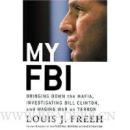
My FB我的联邦调查局
¥ 80 九五品
仅1件
山东济南
认证卖家担保交易快速发货售后保障
作者Louis J. Freeh
出版社St. Martin's Press; 1st edition
ISBN9780312321895
出版时间2005
印刷时间2005
装帧精装
页数336页
上书时间2016-05-23
- 在售商品 暂无
- 平均发货时间 暂无
- 好评率 暂无
- 店主推荐
- 最新上架
商品详情
- 品相描述:九五品
- 几近全新
- 商品描述
-
简介:Louis Freeh led the Federal Bureau of Investigation from 1993 to 2001, through some of the most tumultuous times in its long history. This is the story of a life in law enforcement, and of one man’s determined struggle to strengthen and reform the FBI while ensuring its freedom from political interference.
Bill Clinton called Freeh a “law enforcement legend” when he nominated him as FBI Director. The good feelings would not last. Going toe-to-toe with his boss during the scandal-plagued ‘90s, Freeh fought hard to defend his agency from political interference and to protect America from the growing threat of international terrorism. When Clinton later called that appointment the worst one he had made as president, Freeh considered it “a badge of honor.”
This is Freeh’s entire story, from his Catholic upbringing in New
Jersey to law school, the FBI training academy, his career as a US District attorney and as a federal judge, and finally his eight years as the nation’s top cop. This is the definitive account of American law enforcement in the run-up to September 11. Freeh is clear-eyed, frank, the ultimate realist, and he offers resolute vision for the struggles ahead.
From Publishers Weekly
Freeh defends his performance as FBI director (1993-2001) and retaliates against Richard A. Clarke's Against All Enemies and Bill Clinton's My Life in this smooth memoir, written with the help of Means. "I spent most of the almost eight years as director investigating the man who had appointed me," Freeh declares on the book's first page, but readers expecting juicy revelations about those investigations are going to be disappointed. Freeh goes into fascinating detail when describing the FBI's work on the 1996 Khobar Towers bombing in Saudi Arabia-the most damning thing he has to say about Clinton is that Clinton didn't push for the prosecution of the bombers. Freeh's recounting of his work as an FBI agent in 1970s, when his team helped eviscerate the power of the Italian mafia in New York, is similarly generous with details. And his accounts of his childhood in New Jersey and his years working his way through Rutgers are also engaging. Freeh argues convincingly against the establishment of a separate Domestic Intelligence Service, for the FBI's use of international agents and for a major investment into the Bureau's technological capacity-it's horrifying to realize that the agency has less computer power than any of America's major enemies. In a few pages of near end of the book, Freeh lambastes Clarke, calling him a "self-appointed Paul Revere" and a "second-tier player." He also accuses Clarke of deception, alleging that Clarke lied or distorted information in five places, including Clarke's assertion that Freeh is a member of Opus Dei. If corroborated, these accusations may deal a serious blow Clarke's reputation. When it comes to the Clinton investigations, however, Freeh doesn't really deliver anything new. And his explanations for the rift between them come off as disingenuous. "Maybe I was, in Clinton's eyes, too much the altar boy," Freeh muses on page 17. More than two hundred pages later, he reveals that he snubbed the President's first two collegial gestures, and elsewhere Freeh drops references to his close friendship with H.W. Bush, who worked as director of the CIA before he was president and after whom Freeh names the FBI's new command center in 1999. "We had differences of temperament," Freeh acknowledges about Clinton. His book would have been stronger if he acknowledged more directly that he and Clinton had differences of politics, too. After all, it's to Clinton's credit that he appointed Freeh despite those differences, and to Freeh's credit that he didn't allow them to hamper his excellent performance on the Oklahoma bombing and Robert Hanssen cases, among oth
相关推荐
— 没有更多了 —



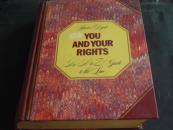

















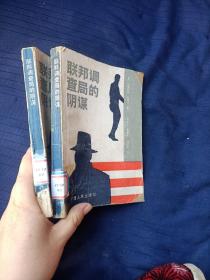
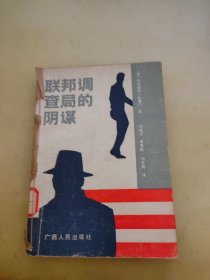






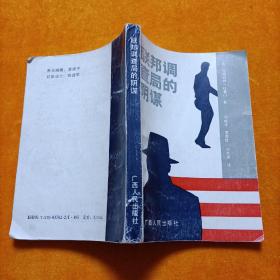
以下为对购买帮助不大的评价